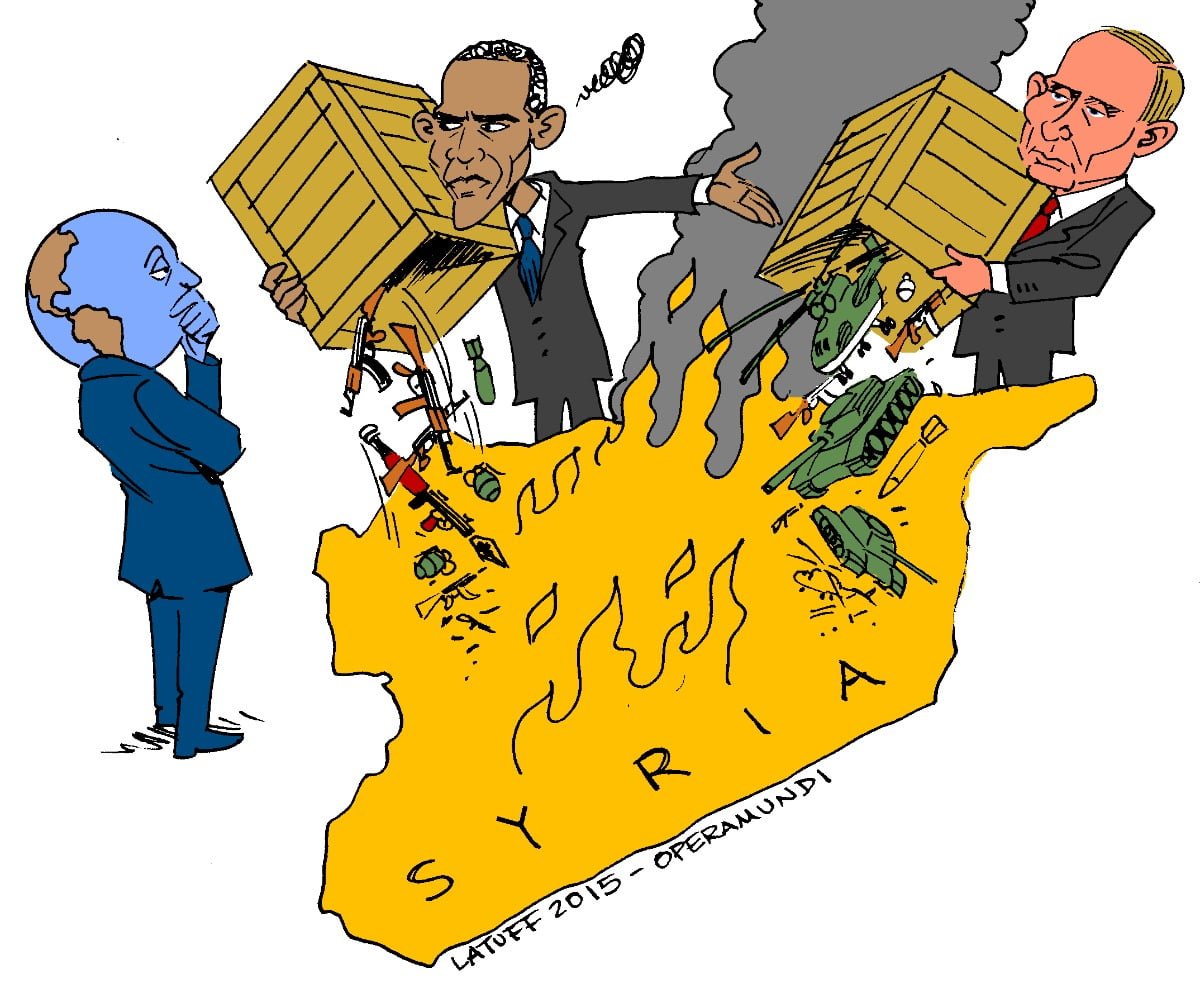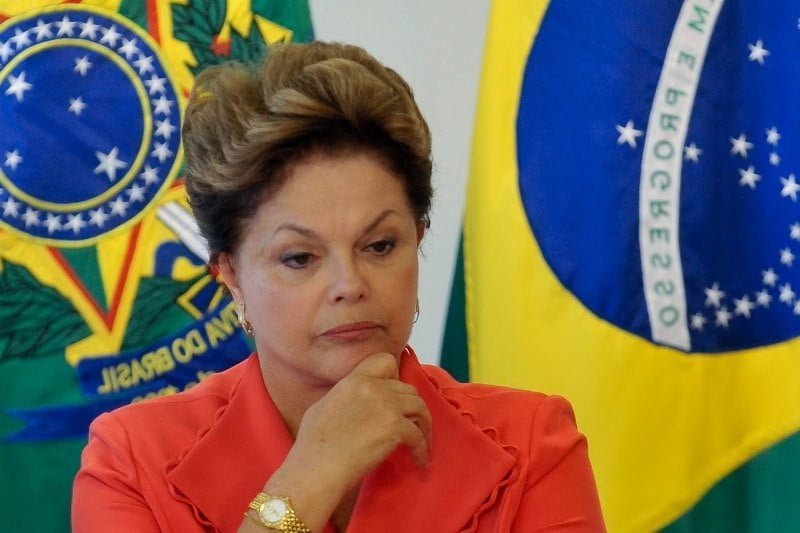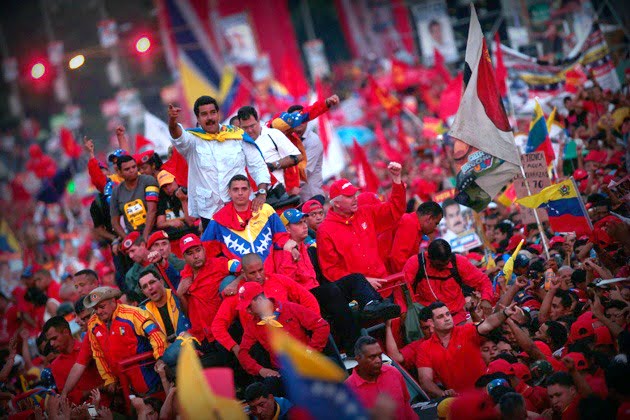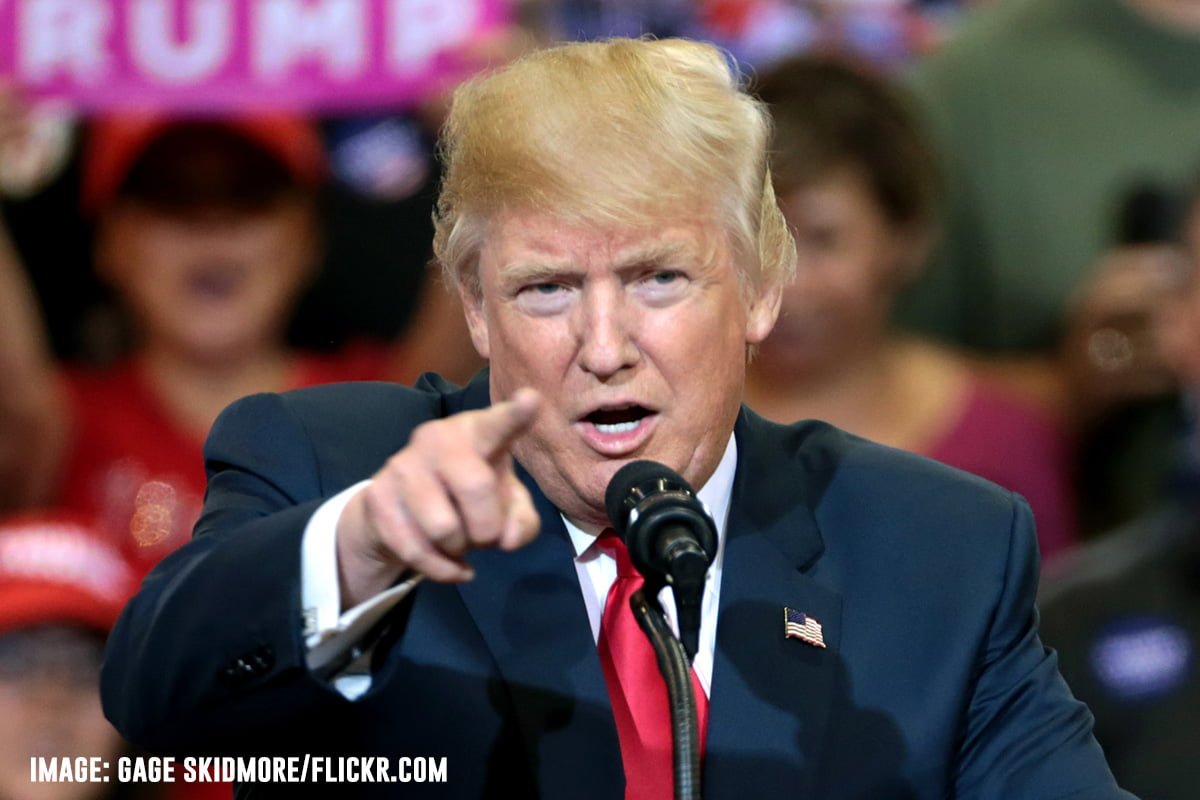We publish here the second instalment of our update to the perspectives for the class struggle internationally. In this second and final part, we look at the latest developments in the Middle East and the decline in US imperialism that these events reflect. Most importantly, we analyse the biggest political shock of 2016: the election of Trump.
We publish here the second instalment of our update to the perspectives for the class struggle internationally. In this second and final part, we look at the latest developments in the Middle East and the decline in US imperialism that these events reflect. Furthermore, we examine the swing to the right in the Latin American politcal pendulum. And, most importantly, we analyse the biggest political shock of 2016: the election of Trump.
Read the original 2016 world perspectives here
Middle East
Since the writing of the 2016 World Perspectives document nothing fundamental has changed, but some elements in the situation have moved on. As we said, “Together with Saudi Arabia and Israel, Turkey represents the main counter-revolutionary force in the region.”
The 15 July attempted coup was a decisive turning point in Turkey. The following purge of the army carried out by Erdogan has temporarily strengthened his position on the home front, while allowing him to act on his expansionist ambitions in the region. He has intervened inside Syria with de facto tacit support from the Russians. The intervention in Syria is a clear move against the YPG who have been the most reliable ‘boots on the ground’ for the US.
This highlights the weakness of US imperialism, which we have looked at in previous documents, but it is an important factor in understanding the situation. It has opened a vacuum into which Russia has stepped in. This has strengthened the hand of local powers, and also enhanced the weight of Russia in the situation.
The impasse of the Middle East is confirmed by the almost immediate collapse of the ceasefire in September. Assad, with the backing of Russia, has been advancing, so why should he accept any such deal?
The situation is tailor-made for a cynic like Russian president, Vladimir Putin, who has no qualms about playing one group off another and in the process betraying those he had supported previously. For example, by selling out the Kurdish movement in exchange for a deal with Turkey, Iran and Russia managed to isolate the Americans who cannot afford a direct clash with Turkey as a NATO ally. The Kurdish card, however, is the only one US imperialism has in its hands. Of course, they will have no qualms about trading the Kurdish movement in exchange for a greater role in the future imperialist division of Syria.
While all these manoeuvres go on, it is the people of the Middle East, in particular in Syria and Iraq who pay the consequences. The impasse in the situation explains the endless military conflict, which is producing millions of desperate refugees, who are amassed in huge camps across the Middle East, destabilising further the countries bordering Syria, and also spilling over into Europe itself with the constant flow of migrants, which is adding to the internal conflicts within the European Union.

It confirms how the crisis is one world crisis, which no country can escape. Rather than stabilising the Middle East with the intervention in Iraq, and later Syria, the imperialists have enormously destabilised it and in the process added to their own domestic instability. The same can be said of Libya, where the bombing of the country rather than solving anything has enormously exacerbated the contradictions.
The solution to the crisis of the Middle East continues to be socialist revolution in one key country, Egypt, Iran, Turkey or in one of the minor countries that would spark off a movement across the whole region.
The Arab Spring failed to change society. That was because of the lack of the subjective factor in countries like Tunisia and Egypt. Because of that we have seen the situation swing from revolution to counter-revolution. But this will not last for ever, as the recent events in Morocco confirm.
At the end of October we saw tens of thousands of people take to the streets of Moroccan cities after a fisher vendor was crushed to death as he was trying to recover fish from a garbage truck which had been confiscated by the local police. These demonstrations were the largest seen in Morocco since the protests during the Arab Spring in 2011.
The Moroccan authorities in fact have been living in fear of a repeat of the big events of 2011. The Moroccan regime after 2011 manoeuvred by making some concessions, introducing some cosmetic reforms, while at the same time buying off the leaders of the trade unions and the protest movement. Recent events show how superficial that was. They also confirm the potential for revolution in the Arab world, which at some point will resurface.
Latin America: Brazil and Venezuela highlight the process
 Events in Brazil and Venezuela in the recent months confirm what we have said in the past. Either a left government abolishes capitalism or it will succumb to its pressures and be forced to carry out the programme of the bourgeoisie. This can be seen clearly in Brazil and Venezuela.
Events in Brazil and Venezuela in the recent months confirm what we have said in the past. Either a left government abolishes capitalism or it will succumb to its pressures and be forced to carry out the programme of the bourgeoisie. This can be seen clearly in Brazil and Venezuela.
Brazil was not affected in the same way as Europe or North America by the 2007-08 crash, and continued to grow at relatively high rates. As China boomed so did Brazil, but once China began to slow down it impacted massively on Brazil.
It all came to an end in 2013 when the Brazilian economy came to a sudden halt with growth of only 0.1%, followed by a fall of 3.8% last year, with 2016 expected to produce a further fall of 3.5%. How far the country has fallen can be seen by the fact that last year Brazil’s debt was downgraded to the level of junk.
An indication of the changes taking place were the popular protests of June 2013, followed by mass strikes of workers in 2014 and 2015, followed by school occupations by high school youth at the end of 2015 and in 2016, and continuing to this day.
In the process, the PT – the mass party of the working class that emerged out of the metalworkers’ movements of the end of the 1970s and early 1980s – has begun to feel the impact of its experience in government. It suffered big losses in Brazil’s October municipal elections. The party lost control of its historic base in Sao Paulo, the country’s largest city, and won in only one of the 26 capital cities. This is part of a historic crisis the party is facing. In 2012 the PT won 17.3 million votes, emerging as the biggest party. In the recent municipal elections it came fifth with only 6.8 million votes. It also lost more than half the mayors it had previously.
To the left of the PT, the PSOL candidate partially filled the vacuum, with some successes, the most important being in Rio, where they went through to the second round, although they then lost to the right-wing. It also went through to the second round in Belém, and Sorocaba.
Across Brazil, the PSOL elected 53 councillors, 10% more than in 2012, particularly in the large cities. Apart from Rio, the party did relatively well in São Paulo, Porto Alegre and Florianópolis, although at this stage it has not replaced the role of the PT in the past. A key weakness of the PSOL is that while it is seen as anti-racist and defending the rights of women and LGBT, it has not yet connected in a big way on class issues such as jobs, housing etc.
This lack of a viable and credible left alternative explains the massive levels of abstention. In Rio 43% of the electorate either did not turn out to vote or cast a blank or invalid vote! In São Paulo, the figure was almost 40%. This is an incredible level of abstention when one considers that voting is mandatory in Brazil.
The candidate of the right in Rio, Marcelo Crivella, although he won, he did so only with the active support of 35% of the overall electorate.
On the electoral plane, because of the role of the PT in the recent period, the shift has been in favour of the bourgeois parties. But as the figures above show this is more thanks to massive levels of abstention than an actual shift to the right among the masses.
With the right wing now in government and with their vicious anti-working class programme, they will prepare the ground for an ever bigger shift to the left later on, and the PSOL stands to gain from such a situation, with the potential for a future scenario similar to the one we saw in Greece with the collapse of the PASOK and the rise of SYRIZA.
 Venezuela, like Greece, is another example of the impasse that is prepared by reformists when they are in government in times of deep crisis of capitalism. In Venezuela the process went much further than in Greece, a process that we have examined thoroughly over the years. The main point we have emphasised throughout this period is that you cannot make half a revolution, and the problem with the Bolivarian leadership is that while it has talked a lot about socialism and revolution, in practice it has left the main levers of economic power in the hands of the capitalist oligarchy.
Venezuela, like Greece, is another example of the impasse that is prepared by reformists when they are in government in times of deep crisis of capitalism. In Venezuela the process went much further than in Greece, a process that we have examined thoroughly over the years. The main point we have emphasised throughout this period is that you cannot make half a revolution, and the problem with the Bolivarian leadership is that while it has talked a lot about socialism and revolution, in practice it has left the main levers of economic power in the hands of the capitalist oligarchy.
A revolutionary situation cannot last forever: either one class or the other must prevail, either the workers, pulling behind it the peasants, urban poor and vacillating middle classes, overthrow capitalism, or the initiative eventually swings back to the ruling class. This is the process we are now witnessing.
In Venezuela what we have now are two powers vying for legitimacy, the government versus the National Assembly – but this struggle can only be resolved on the basis of the real social forces each side has in society and their ability to mobilise them.
As long as the Bolivarian government sticks to its reformist policy of class conciliation, it will be impossible to defeat the economic war unleashed by the oligarchy. In fact, it is this policy that has allowed the bourgeoisie to step up its economic sabotage and go on the offensive against the working class. The raising of the prices of regulated products for example, a measure taken to allow higher profits aimed at encouraging an increased production of these products, far from improving the supply, has favoured the bourgeoisie, while the working class is forced to stand in the same queues to pay for regulated products at higher prices.
The bourgeoisie is determined to put an end to the revolution. Therefore, no amount of concessions will make them stop sabotaging the production of basic goods – causing more shortages, inflation and speculation – until they have completely broken the social base of the Bolivarian Government.
Meanwhile, while they carry out these economic manoeuvres, they also prepare on the political front, exploiting the reformist policy of the Bolivarian government to pave the way for the defeat of the revolution.
Now, the suspension of the recall referendum will serve as a basis for the most radical sectors of the bourgeoisie to plot new insurrectionary plans against the government. As we have previously explained, the bourgeoisie saw the referendum as its chance to defeat the revolution by bourgeois democratic means. But once that option is ruled out, the fascist sectors of the bourgeoisie will put the question of overthrowing the government, by violent means, on the agenda again.
The recent manoeuvres in the National Assembly on Sunday, are in practice the legal and political prelude to the new insurrectionary plan against the government. In addition, the resolution of the National Assembly also makes an appeal for foreign intervention in Venezuela, through the International Criminal Court and other international bourgeois institutions. It also issues a formal call to the Armed Forces to ignore the mandate of the executive power and the other powers of the state. There is no doubt that a new coup will be attempted by the bourgeoisie at some point.
A serious threat hangs over the Bolivarian revolution. As long as the reformist policies of class conciliation are maintained, there is no way out of the current economic situation, and as long as that is not solved, the process of demoralisation of the masses will deepen to a dangerous degree, leading inevitably the revolution to defeat in the near future.
Only the radicalisation of the revolution, through the expropriation of the bourgeoisie under workers’ control and the dismantling of the bourgeois state, can offer a real way out to the economic war, defeating the bourgeoisie once and for all. Faced with this new coup plan, the working class must take a step forward to definitely radicalising the revolution. Committees against the coup should be organised in all unions, factories, neighbourhoods, universities and in the countryside. These committees must link up at a local, regional and national level, through elected and recallable delegates, accountable to the rank and file in order develop a revolutionary plan of action against the economic war. Worker’s control must be applied in the companies which are participating in the economic sabotage, bakeries should be occupied along with supplies stores, warehouses and other shops that are participating in acts of smuggling, hoarding and speculation so that products that are distributed are sold to the communities at fair prices. At the same time the merchandise of black marketeers and smugglers must be confiscated and other revolutionary measures should be taken against the economic sabotage, smuggling and speculation. The time has come to radicalise the revolution, failure to do so will mean to open the doors of the country to the triumph of the counterrevolution.
American elections
 The most dramatic change that has taken place since our original world perspectives was written earlier this year is the victory of Trump in the US Presidential elections. Donald Trump’s victory has produced the biggest political upset in history; a political earthquake that has shattered the entire global Establishment, making Brexit look like a minor tremor in comparison.
The most dramatic change that has taken place since our original world perspectives was written earlier this year is the victory of Trump in the US Presidential elections. Donald Trump’s victory has produced the biggest political upset in history; a political earthquake that has shattered the entire global Establishment, making Brexit look like a minor tremor in comparison.
Clinton, who was the clear candidate of the Establishment, of Wall Street, was humiliatingly defeated. The more serious bourgeois analysts have understood that what took place in these elections was a rejection of the politics of the elite. The irony of this is that a billionaire, and no friend of the working class, Donald Trump, became the channel through which this was expressed by a layer of the population.
Trump played the anti-establishment card and he won. Polls show, however, that if Bernie Sanders had been the Democratic candidate, he would have defeated Trump, as his calls for free healthcare, education and so on, would have connected with many of those working class people who voted for Trump.
We have analysed at length in previous documents and articles, the Bernie Sanders phenomenon and there is no need to repeat it here. Suffice it to say that the Sanders campaign revealed the potential for a mass, socialist, workers’ party in the United States. What was brought to the surface during that campaign is not going to go away, but will eventually lead to the formation of some independent political voice of the American working class.
The spontaneous youth protest across the United States on the day the results were announced give us a foretaste of what the coming period in the United States is going to be like. We can look with confidence to a new period that has opened up in US society, one of polarisation to both the right and the left, of intensified class struggle never seen before in the history of the United States.
General conclusions
As we have explained many times, we have entered a period of sharp turns and sudden changes. That was graphically confirmed by the Brexit vote in the UK, and now by the victory of Trump in the United States. Such phenomena “surprise” and “shock” the reformists and bourgeois liberals, because they do not understand the underlying causes, the deep malaise that affects wide layers of the working class, the youth and the poor in all capitalist countries.
We have had decades of attacks on working people, which accelerated in the recent period after the 2008 crisis. Initially the crisis produced shock and confusion among a wide layer of workers. But since then, this has been translated into anger and a desire to do something to change things.
It is this that explains the rise of SYRIZA – in spite of its later betrayal –the phenomenal growth of Podemos in Spain from practically nothing, the dramatic change in the British Labour Party around Corbyn, the beginnings of a movement around Melenchon in France. It is the early stages of the more advanced layers looking for a sharper, more left-wing alternative.
This is bringing to the forefront the phenomenon of left reformism, but it is also putting into focus all its limitations. Venezuela and Greece are prime examples. All kinds should study these two experiences as they are full of lessons for all countries. It is important that these lessons be learnt, for the same process of radicalisation is taking place on a global level.
We are seeing mass movements erupt all across the globe. The recent 200,000 strong trade union demonstration in South Korea calling for President Park Geun-hye to step down is an example. This latest protest was the biggest for several years and it highlights the deep crisis of the Park government. In South Africa we have seen a wave of mobilisations of thousands of South African students taking their futures into their own hands. This has shaken up South African society. The youth are not content to leave their fate to those politicians and leaders who have adapted themselves to life under capitalism. The youth are now among the most politically active layers in society and they are taking the road of class struggle. This has also been partially expressed on the political front with the emergence of Malema’s Economic Freedom Fighters, EFF, which have partially filled the vacuum left by the decline in support for the ANC. Again, here we have an experience of the leaders of the mass liberation movement being integrated into bourgeois society and the state, and in the process beginning to lose the support of the masses.
Generally speaking, we are seeing polarisation both to the left and the right. This is natural, as it reflects the growing contradictions in capitalist society on a global scale. Capitalism is in an impasse, as it is incapable of guaranteeing the living conditions of the past. Workers everywhere are feeling the pressure of a system that can only survive by squeezing the workers more and more.
This process leads inevitably to revolution, but that road is not a straight line. We will see periods of massive surges in the class struggle, which will produce radical political phenomena, but these will be followed by periods of reaction as the reformist leadership of the movement betrays the aspirations of the masses. In the process, all tendencies on the left will be put to the test. If the Marxists are ready with sufficient forces within the labour and youth movement, they will be able to build mass revolutionary parties like the Bolshevik party of Lenin in 1917. On the eve of the centenary of the October Revolution, the conditions are being prepared once again for socialist revolution, this time on a global level. Our task is to understand and build, first the cadre organisation and later the mass party that will be capable of leading the working class to power, thus completing the unfinished task of October.






